2 August 2020
Marian Turski
Praʒivdi e genocidesqi
Seripnasqo vakeripe p-o 2-to Avgust 2020, Memoriàlo Dives e Genocidesqo vaś o Sìnte aj o Rroma
O dives e seripnasqo vaś i eksterminàcia e rromenqi and-o Auschwitz-Birkenau si paśe. So śaj te phenav me, kaj siom sas phandlo k-o Oświęcim, me phralenqe rroma thaj sìnte and-i Pòlska avdusni, ande jekh Evròpa tasavdi and-i pandemìa. Savorre sam pherdo daraça sar manuśa ʒivde, no jekh dives ka arakhlol jekh vaksìna laćhi, ja jekh aver drom sar te phandas o drom e pandemiaqo, sar so ondilo vi k-o aver sure k-o nakhlipe. Si jekh aver bengalo nasvalipe kaj astarda i Pòlska ta i Evròpa - i xir mamuj aver manuśa; akaja xir nasvalǎrel e godǎ aj si phares te arakhes drab laqe.
Te naśti nakhavdam amare xolǎ mamuj o avera, kamav te phenav o anticiganìzmo, o anti-semitìzmo, i ksenofòbia, i dar avere varekasθar, i anksietèta, aj akava si but maj bilaćhes sar sarsavi epidèmia, sosqe viśarel amare godǎ.
Kamav te phenav me rromane phralenqe kaj o lekhavno kotar i Pòlska o Antoni Słonimski kerda jekh poèzia, “Ov si kotar mo Dadesthan”. Naśti te phenav sa i poèzia, no kamav te phenav laqo mesàźi - o poèti phenel, odova savo dukhal les kana dukhal e Grekosqe, odova savo xaćarel i dukh kana o Francùzo xaćarel dukh, “Ov si kotar mo Dadesthan”.
Mo suno si te oven so po but manuśa sar ande akaja poèzia ande munro Dadesthan.
Biogràfia
Marian Turski was born in 1926 in Lodz; his birth name was Moshe Turbowicz. The Germans invaded Poland in 1939, and in 1940, Moshe, his parents Eliasz and Helena Rachel, and his younger brother Wolf, were forced into the Lodz ghetto. Moshe attended the ghetto high school and joined a Communist youth group. In August 1944, the Turbowicz family was deported to the Auschwitz killing center, where Moshe’s father and most likely his brother were murdered upon arrival. He was later transferred to the Buchenwald concentration camp, and was liberated at Theresienstadt after surviving a death march from Buchenwald. Moshe returned to Lodz, where he was reunited with his mother. Later he married Halina, a survivor of the Warsaw ghetto. Since the end of World War II, Marian Turski has had a distinguished career in Poland as a journalist and Jewish activist.
Mothovimàta e genocidesqe praʒivdenqe
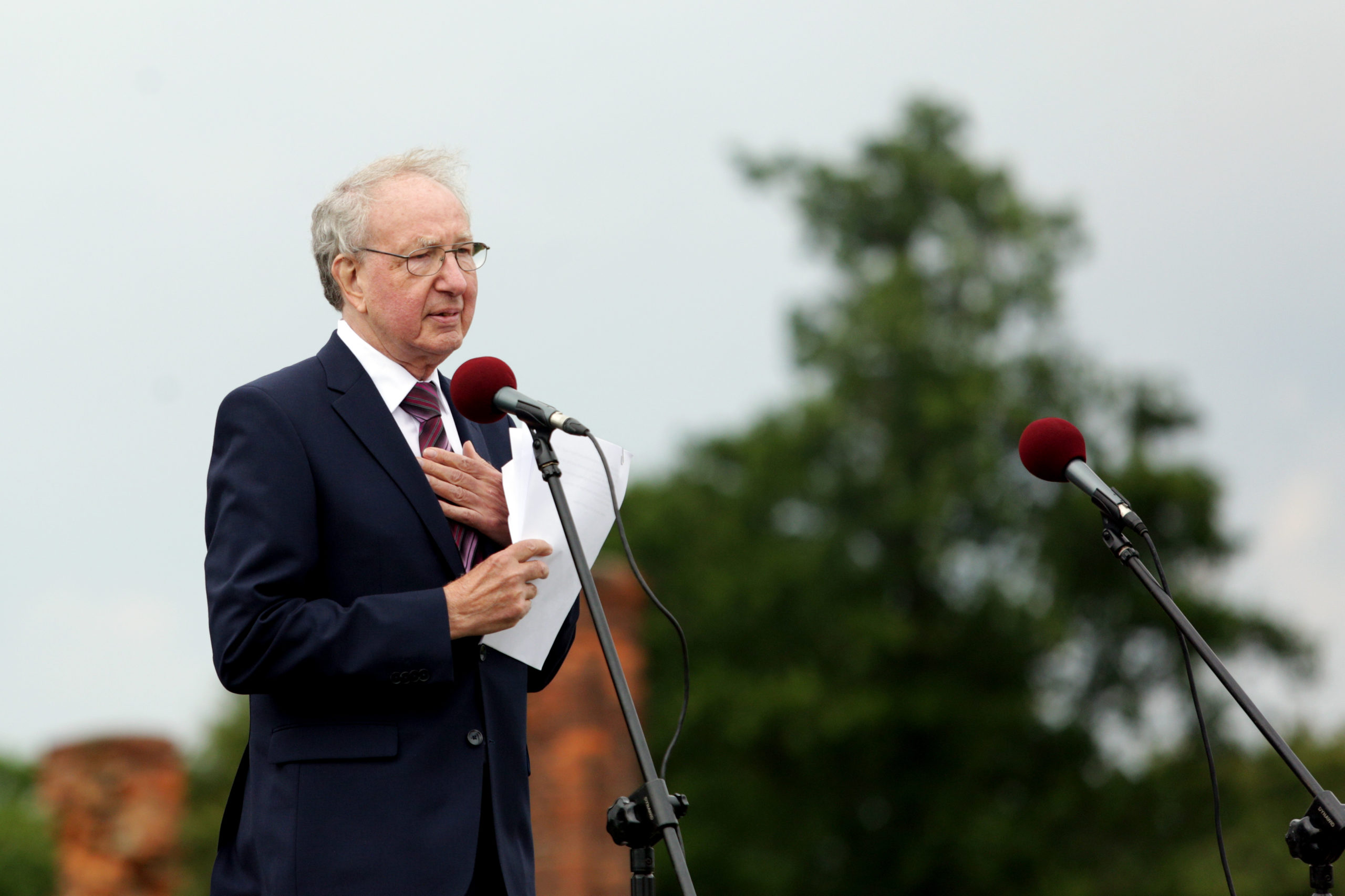
Werner Friedrich
Praʒivdi e genocidesqi
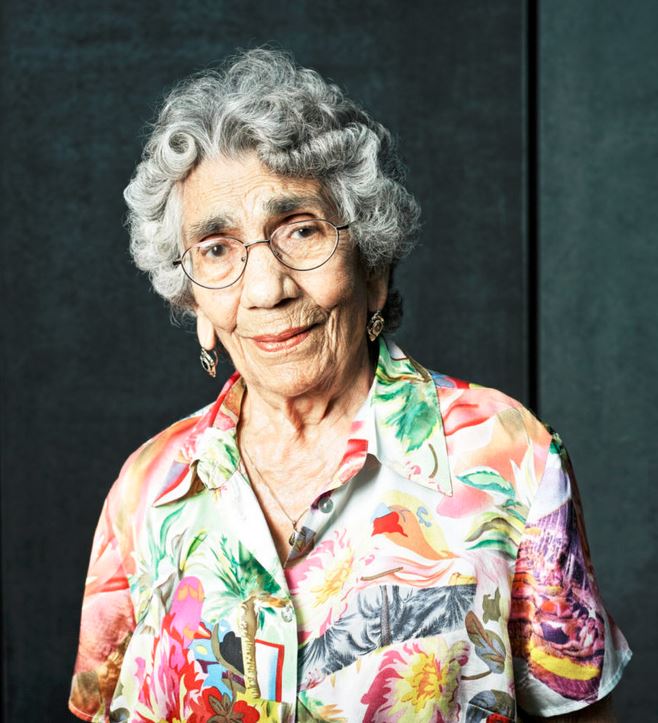
Zilli Schmidt
Praʒivdi e genocidesqi
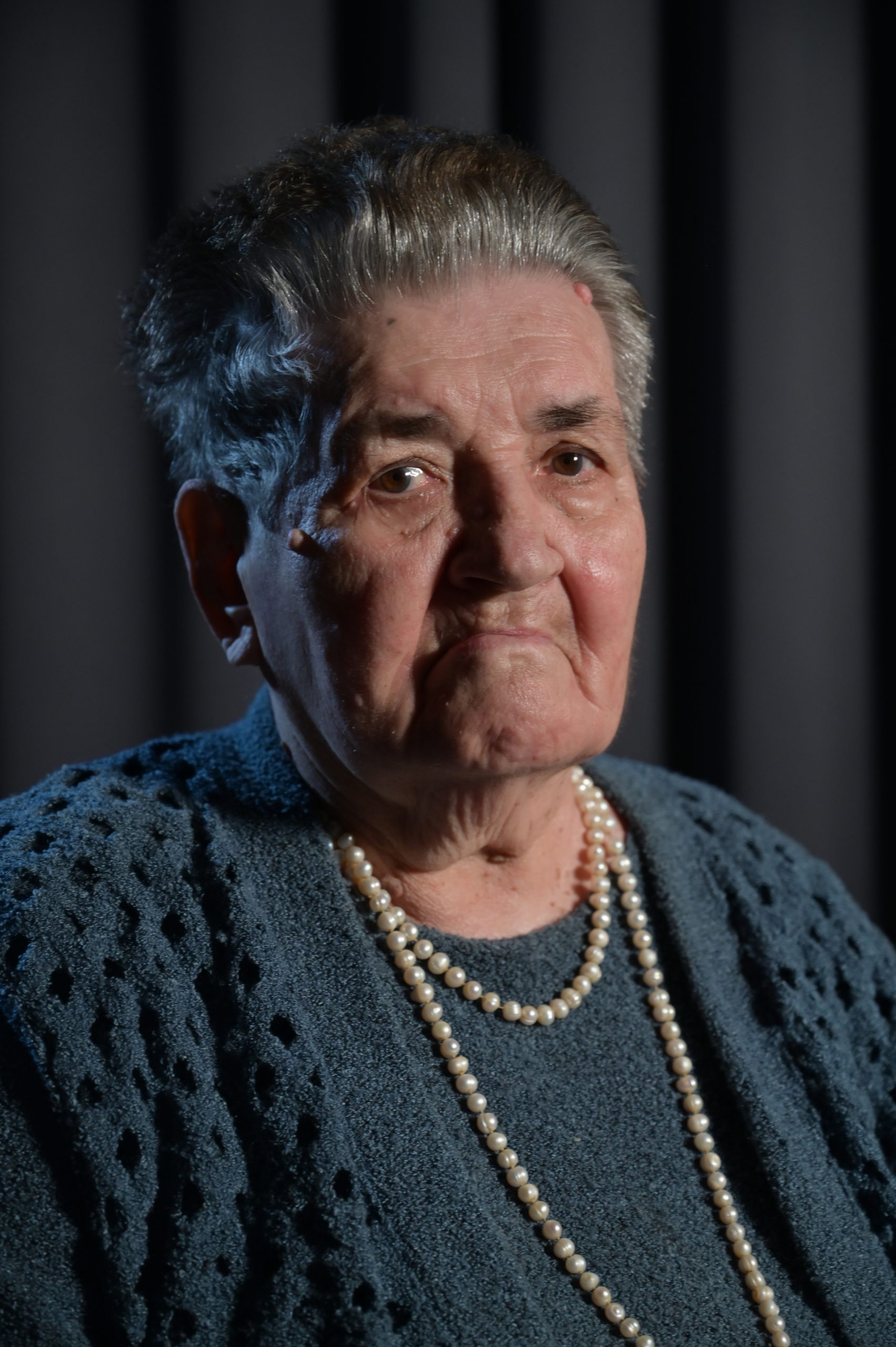
Krystyna Gil
Praʒivdi e genocidesqi
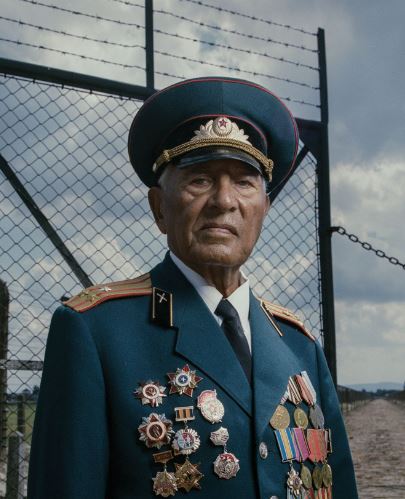
Ivan Bilashchenko
Praʒivdo kotar o genocìdi aj xelado anglal and-i Loli àrmia
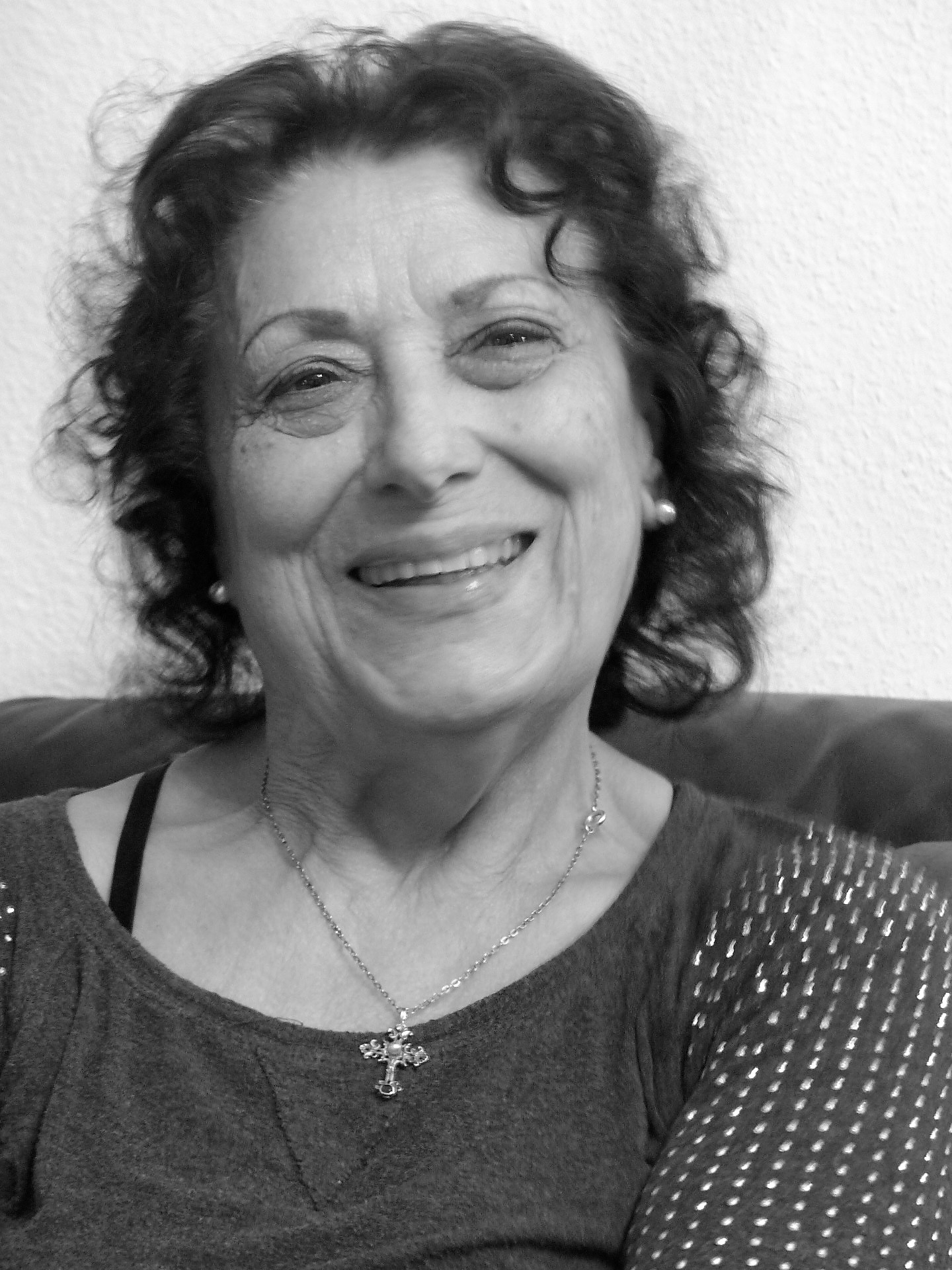
Rita Prigmore
Praʒivdi e genocidesqi










